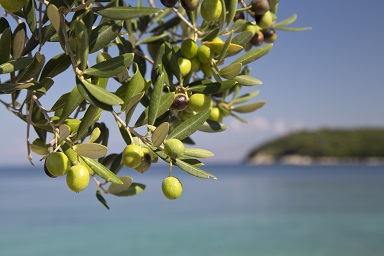Making the EU’s olives greener…for the environment

Related topics
Agriculture & Forestry Innovation Industrial Leadership Innovation in SMEs Germany Italy Spain Food security, sustainable agriculture and forestry, maritime and martime inland water research and bio-economydate: 14/04/2015
Project: Optimisation of the biotechnological rec...
acronym: ALGATEC II
See also: CORDIS
The EU is the world’s largest olive producer, supplying an average of 2.2 million tonnes of olive oil every year. Spain, Italy and Greece account for around 97% of production, and the sector is dominated by small companies.
Producing 100 kilos of olives requires around 50 litres of water, which is currently discarded as wastewater. The ALGATEC II project has found a way to re-use the water used to wash olives, cutting the use of drinking water by 90% and removing the wastewater disposal problem.
“We really think this can work,” said project coordinator Antonia Lorenzo of Spanish SME BIOAZUL. “Growing global demand for olive oil is considerably increasing the use of water in countries where this resource in scarce and moreover, there is significant waste, especially wastewater.”
Cleaning up wash water
Polyphenols are one of the reasons that olives are so good for us. Naturally present on the skin of olives, research shows these antioxidants may help protect us from disease. But released into the environment in large volumes, such as in olive wash water, they can be harmful.
Olive wash water is traditionally left in large evaporation ponds. But the ponds have a limited capacity – which in turn limits production – and must sometimes be emptied manually. Meanwhile the odours and insects that accompany stagnant water are unpleasant for the olive mill’s neighbours.
The ALGATEC II approach first involves pumping the wash water to a photobioreactor, where micro-organisms absorb the pollutants. In winter, when sunlight is lacking, solar panels can be used to heat the water, increasing the organisms’ growth to speed up the process.
The effluent then goes through a final “polishing step”, where it is passed through two membrane filters that remove any remaining pollutants. What’s left can be used as drinking water, or to wash more olives. It can also be discharged safely into sewers – dirty wastewater cannot.
While the solution cannot compete with evaporation ponds on cost, it removes many of the problems associated with the ponds and also allows producers to expand production. The system can also be tailored to the producer’s needs – the final filtering step is not necessary if drinking water is not required.
The additional cost attached to a litre of olive oil would be “almost nothing”, says Lorenzo, and the technology is cheaper than current alternatives on the market.
“The project is proof that investment in research is good for the environment as well as growth and jobs,” said EU Research, Science and Innovation Commissioner Carlos Moedas. “These remain our priorities under the current EU research programme, Horizon 2020.”
A demonstration plant is up and running at the University of Huelva in Spain, and the five ALGATEC II partners – SMEs from Spain, Italy and Germany – are now working on a business plan to put the technology on the market.
Below picture of the ALGATECII Photobioreactor
©BIOAZUL SA
Background
The ALGATEC II project received €886 000 in funding under the European Union's Seventh Framework Programme for Research and Technological Development (2007-2013) as a demonstration project. It is using the promising results from the previous ALGATEC project to make it competitive for the market and to prepare for commercialisation.
